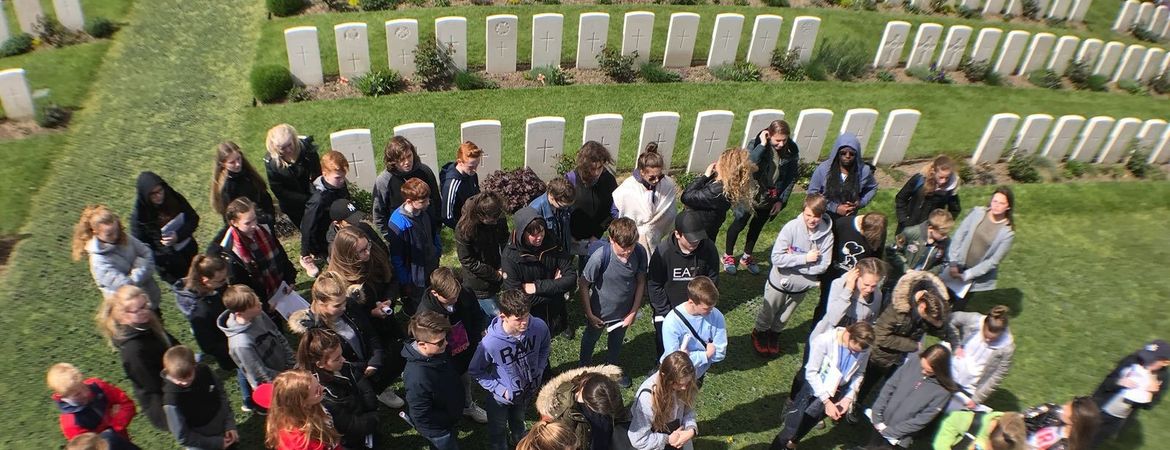History
At Trinity all students will encounter a rich and broad history curriculum demonstrating that while Britain is in the world, it is not the center of the world. Students will study some of the different societies, cultures and beliefs around the world and the similarities and differences between them, challenging commonly-held misconceptions and stereotypes. They will encounter different examples of empire and their legacies and how protest and conflict has been managed within and across these frameworks. Finally, they will chart how and why beliefs, ideologies and the balance of power have changed over time and the consequences of this. The study of history will give students an understanding of how the past has shaped life in our local area, in Great Britain and the wider world. Through the course of study students will develop the knowledge and skills to become informed and compassionate global citizens. Students will grapple with historical concepts including causation, consequence, change and continuity and historical significance. They will explore the process of the historian and use evidence to pose and answer historical enquiry questions. Students will examine a range of historical sources and the work of a diverse range of historians. They will understand how historical claims are made through reading and constructing their own arguments.
By the end of Year 9, all students will have experienced a history curriculum which goes above and beyond the requirements of the national curriculum. Students will be able to comprehend historical evidence and interpretation and will be beginning to use it critically. They will have developed their skills of analysis and evaluation to make judgements about the past and will be proficient at utilising specific historical evidence to validate their claims.
By the end of Year 11, students will have developed their historical skills through one breadth and four depth enquiries. At GCSE level, the students will study a thematic course charting the development of crime and punishment in Britain over the last thousand years. They will have encountered works of historical interpretation regarding the political changes that took place in Germany during the early twentieth century. In addition, students will undertake two further contrasting depth studies of Anglo-Saxon and Norman England and the American West. Students will have refined their skills and be proficient in using evidence critically and debating interpretation with confidence. Our exam board is Edexcel.
At A Level, history students will study the social, economic and political developments of the twentieth century in contrasting topics on Britain and the USA. They will encounter different interpretations on the premiership of Margaret Thatcher and will develop their skills in responding to and creating their own historical interpretations. Students will go on to enhance these skills in a 4000-word independent essay on the debates surrounding the American Civil Rights Movement. For their final topic, the students will explore the reasons for the rise of the British Empire and will conduct a series of case studies into specific areas that were colonised by the British in the 18th and 19th centuries. Our exam board is Edexcel.
SEND and History at Trinity
At Trinity It is an expectation that all lessons and wider resourcing has effective provision for students with SEND so that they are able to make equal progress to their peers. SEND data is analysed and used to inform planning and interventions where necessary.
In History all teachers consider the needs of SEND students in three ways. Firstly teachers consider a ‘seating check’. In History this means that students are sat in the most appropriate seat for their educational need. This enables teachers to check for subject knowledge, gauge understanding and met the individual needs of learners.
Secondly all resources are checked to ensure they are SEND friendly. In History this means that teaching resources meet the needs of various SEND needs. For instance, PowerPoint presentations have neutral backgrounds and are also dual coded. As a department we chunk the content of the lesson, especially when difficult concepts such as hierarchy are being discussed. This means that students are not overwhelmed or cognitively overloaded. Writing frames, structure strips and other supportive strategies are used for writing activities to ensure that all students are able to succeed in extended writing tasks.
Finally the way History is implemented is at Trinity ensures all SEND students can make progress. This means that we take time to model answers to students. Modelling is an extremely valuable way of making it explicit to students how to access and tackle questions as well as showing students how to approach a question in different ways.


